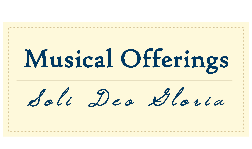Publication Date
6-6-2013
Document Type
Article
Keywords
Cosmos, anthropos, power of music, humanism, holism
Abstract
Music is an experience that is universal to all of mankind, no matter one’s race, gender, culture, or socioeconomic status. Whether it’s beholding one of Mahler’s symphonies in Carnegie Hall or listening to the “No. 1 Top Single” on iTunes using headphones, one truth is evident: music moves. The statement “music moves” inherently possesses an implication of the 'cosmic' and the 'anthropic’ nature of music – a holistic union of both mystery and humanity. This one truth has been the subject of an ongoing 2,000 year-old discussion that attempts to articulate the powerful reaction that results from experiencing music in all forms, beginning with the ancient Greeks of antiquity who possessed a cosmologically-grounded explanation to the power of music. However, as time moved forward, this cosmological, mysterious paradigm of the power of music slowly began to incorporate explainable and tangible anthropological articulations of the power of the music with respect to the human emotions, senses, and thoughts. This incorporation of anthropos reached a climax in the Renaissance era with the ushering in of humanism, which stripped away the mysterious and replaced the cosmologically-grounded explanation of music with the anthropologically-grounded view of naturalism. Since this profound departure from cosmos, society seems to be at a loss in articulating accurate reactions to music.
This paper offers two proposals with respect to musical thought, one for society at large and one for the individual. I assert in this paper that society, in general, needs to return to an appreciation of the cosmos, the answerable, and the mysterious in nature, and that the individual needs to commence thinking holistically with respect to music—incorporating both cosmic and anthropic thought. I have reached my conclusions, assertions, and propositions based on this thesis by critically analyzing both primary and secondary resources in the form of the historical documentation methodology.
Volume
4
Issue
1
DOI
10.15385/jmo.2013.4.1.3
Recommended Citation
Cates, Brian R.
(2013)
"On the Power of Music: Using 'Cosmos' and 'Anthropos' to Articulate a Holistic Approach to Discussing the Power of Music,"
Musical Offerings: Vol. 4:
No.
1, Article 3.
DOI: 10.15385/jmo.2013.4.1.3
Available at:
https://digitalcommons.cedarville.edu/musicalofferings/vol4/iss1/3
Creative Commons License

This work is licensed under a Creative Commons Attribution-Noncommercial-No Derivative Works 3.0 License.
Disclaimer
The CedarCommons repository provides a publication platform for fully open access journals, which means that all articles are available on the Internet to all users immediately upon publication. However, the opinions and sentiments expressed by the authors of articles published in our journals do not necessarily indicate the endorsement or reflect the views of Digital Services, the Centennial Library, or Cedarville University and its employees. The authors are solely responsible for the content of their work. Please address questions to the Digital Services staff.
Copyright
© 2013 Brian Cates. All rights reserved.

